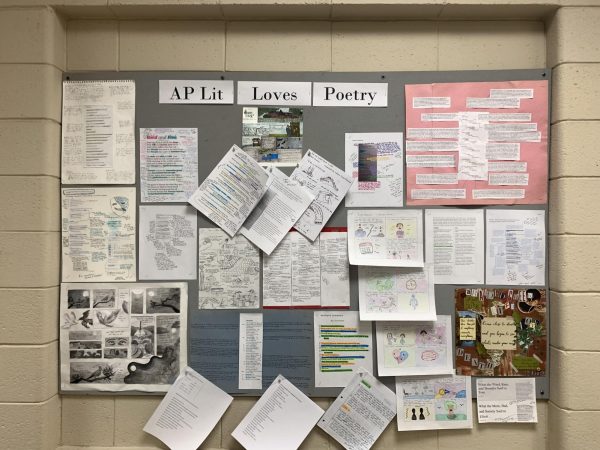Stress Optional
For 11th and 12th graders across America, college applications bring a variety of new stresses: writing essays, maintaining or raising their GPAs, and the infamous standardized testing.
There are two types of students in the world: those who are naturally good at taking tests and those who aren’t. Yet each individual student has different strengths, weaknesses, and gifts. Some students can read extremely fast. Some students can retain large amounts of information. Some students can write so eloquently that readers have to fight back tears while reading their moving words. But the one type of student who has the upper hand when it comes to a test that determines your future is envied across America: the multiple choice wiz.
For a select number of people, multiple choice just clicks. These are the good guessers, the low stress level test takers, the calm, and the intuitive. When it comes time for these people to take the SAT or ACT, they don’t lose a minute of sleep or a drop of sweat. As they receive their 2200s or their 32s, they are pleased and move on to the college application process with smiles across their faces.
But there are others. There is a huge population of teens who don’t have this breezy experience. These people spend thousands of dollars on SAT tutors and ACT prep classes to receive a 1700. A 1700 that may mean nothing more than a letter of denial from Penn State.
The average student at Penn State Main Campus with no summer session has a 1760 SAT and a 3.6 GPA. The University of Pittsburgh average student has a 1900 and a 4.0 GPA. The average student at Bloomsburg University has a 1330 and a 2.5 GPA. When looking at statistics such as these, students start referring to themselves, and their worth as learners, as a number.
These numbers begin to control everything. “Well I got a 1710 so should I even apply to Penn State?” “I broke 2000 but just barely, do I apply to Notre Dame?”
There are devoted students, who struggle with multiple choice and standardized tests, who are frustrated by college applications. They wished they could just have a conversation with the admissions counselor and tell that person everything about them, their accomplishments, how hard they worked to score a below average SAT score…because they did.
While these struggling scholars didn’t exactly get their wish, they now have something very close to it. Certain colleges and universities across America have begun to offer test optional applications. Students don’t get an interview and time to persuade, but they do get an essay and a focus on extracurricular activities and community service.
Ever heard of Temple, Wake Forest, Hofstra, Bryn Mawr, or Fairfield? These are five well-known schools that give students the opportunity to complete writing supplements instead of sending in standardized test scores.
One of the questions on the writing supplement is very simple: Why did you choose to complete a test-optional application? This is our chance. These are the students who were after school every single day volunteering, singing, playing football, working, getting the chance to say all they accomplished in high school besides that four-hour standardized test in a random, musty classroom, 45 minutes away from their homes.
Although many parts of life aren’t fair, test-optional college applications are one of the fairest choices a university can make. Students across America are more than just numbers; they’re actual human beings. They’re not a 1710 or a 23. They’re students who mean more than getting an exceptional or embarrassing SAT score during their four years of high school. They’re the athletes, the singers, the volunteers, the workers, the writers, the perfectionists. They must be that instead of discouraged and rejected. The up and coming college application is a gift to the well-rounded. It is a chance for students who don’t have an upper hand at multiple choice to shine and feel like they’re worth more than a four or two-digit number.


